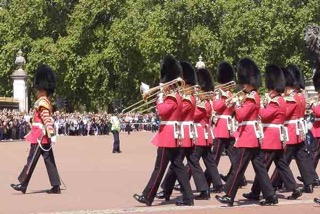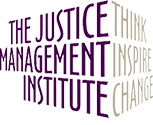On a recent stopover in London my husband and I finally had the opportunity to observe the changing of the guard at Buckingham Palace. It got me thinking about rituals. According to freedictionary.com, a ritual is a ceremony in which the actions and wording follow a prescribed form and order. Rituals are often used in places of worship or by organizations – e.g. according to Catholic ritual.
Hundreds of people show up every day to bear witness to the changing of the guard, I among them. While waiting for the event to begin, I gazed over to Buckingham Palace and noted the famous porch where the late Princess Diana and Prince Charles shared a kiss on their wedding day, and twice presented beautiful sons. More recently, the world celebrated the union of Prince William and Princess Kate and now awaits the opportunity to welcome their second child.
There is something to be said for rituals that create stability and predictability, generate awe and respect, and give us hope for a bright future. When our rituals serve us well, they provide solid ground on which to thrive. From England’s early rule, through today, Kings and Queens of England have governed with traditions that have evolved with social, economic, or political changes.
Worldwide there are also rituals that seem archaic, sometimes inhuman in today’s global awareness. For example, the act of honor killing, the killing of a relative (typically a girl or a woman), who is perceived to have brought shame to the families reputation (nationalgeographic.com) is particularly disconcerting to baby boomer women, like myself, who fought vigorously for the basic human right of equality.
I then began wondering what differentiates a ritual from a habit? Every day we all engage in habitual behaviors – those familiar activities like waking up at the same time of day, or dining at the same time every evening. Brain studies show there are particular neural networks that coordinate to help us maintain routines. Authors of a 2014 Scientific American article note that the more routine a behavior becomes, the less we are aware of it (automatic). Indeed, most of us have experienced the challenges of working to break a habit not serving us well. Changing habits is never easy. It seems to me that numerous networks of the brain are involved in habitual behaviors. What appears to differentiate ritual vs. habit is the ceremonial aspect prescribed by tradition, doctrine, form and order – e.g. Buckingham Palaces changing of the guards is daily scheduled.
What does all of this have to do with coaching? In 2007, Marshall Goldsmith wrote an article titled Which Workplace Habits Do You Need to Break to Become More Successful (http://www.marshallgoldsmithlibrary.com/docs/articles/Which-Workplace-Habits.pdf). In the article he lists 21 habits that stand in the way of great leaders reaching higher levels of accomplishment. He suggests that we all fall victim to one or more of these unproductive behaviors at any time our career and life. I read the article and reference his book (What Got You Here Won’t Get You There) on a regular basis to assess my own function. The exercise enables me to maintain an awareness of my own shortcomings and generate strategies to improve (breaking poor habits, for example). How about you? Which habits (or rituals) aren’t serving you or your organization well?
The good news is that unsatisfactory habits can be changed. Most of us, however, require support to relearn new and desired behaviors. Coaching is a valid option for supporting new habits, productive behaviors, and goal attainment. Contact me at 802-258-8182 if you desire changing undesirable behaviors.
Dr. Jan Bouch






